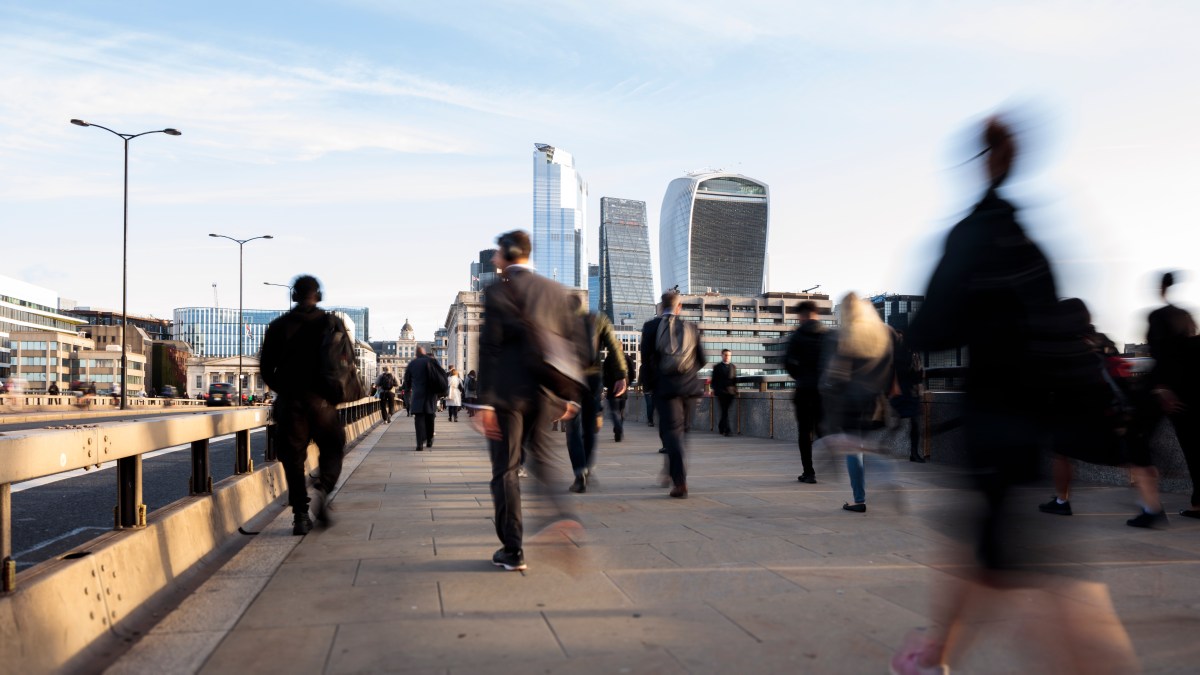Could the future of the UK state pension be about to get even bleaker? As tax traps on higher earners risk driving young, ambitious workers abroad, experts warn of the ruinous consequences it could have on pensioners.
Some 28 per cent of 18-30 year olds said they were either actively planning or had seriously considered emigrating when surveyed by the Adam Smith Institute in July this year. The think tank said many were worried about being “overtaxed, underhoused and undervalued.”
The threat of a young worker exodus has economists concerned, not least because it threatens to derail the whole social contract on which the state pension relies.
The state pension is funded by national insurance contributions from today’s workers, rather than from a national pension fund people pay into over their lifetime. It costs about 5 per cent of GDP a year — a figure which is projected to rise to 7.7 per cent by 2070, according to the Office for Budget Responsibility (OBR), the fiscal watchdog.
A mass exodus of high-earning young workers would make it even harder to fund, especially given the birthrate is falling. It was at 1.41 children per women in 2024, down from 1.42 in 2023, according to the Office for National Statistics (ONS). Without immigration the rate would typically need to be 2.1 to maintain a stable population.
For now, national insurance contributions more than pay for the state pension. This tax year, contributions are expected to raise about £200 billion, while the state pension costs £145 billion. This leaves “surplus” cash for other spending, including the NHS.
For every pound raised in national insurance, the Treasury spends 77p on national insurance-based benefits (including the state pension, sick pay and job seeker’s allowance), leaving 23p spare.
• The exact year that the triple lock will bankrupt the state pension
However, by 2050, widespread emigration could turn the 23p national insurance surplus into a 14p deficit, according estimates by Guiide, a retirement planning platform. This black hole may need to be filled by either raising more tax from a shrinking pool of workers, or making the state pension less generous.
“We already know we’re in trouble. The OBR forecast shows the cost of the state pension is already rising by 50 per cent over the next 50 years and that’s without emigration — that’s without the younger, wealthier cohorts of the population up sticks and leaving,” said the pensions expert Tom McPhail.
But, as young people face a perfect storm of high taxes and even higher living costs, is it any wonder they wish to leave?
The average UK house price was £273,000 in August— more than seven times average earnings for a full-time worker (£37,600 a year).
• No tax, no crime, no free speech. So would you move to Dubai?
And ambitious higher earners are rewarded with stifling tax traps. The marginal tax rate on income between £100,000 and £125,140 a year is 62 per cent in England and Wales. This is because on top of paying the 40 per cent higher rate of income tax and 2 per cent national insurance, they also lose their £12,570 tax-free personal allowance. This is lost at a rate of £1 for every £2 earned above £100,000, until it is completely gone once you earn £125,140 a year.
A 2024 report by The British Council, an organisation that supports relationships between countries, found nearly three quarters of 18-30 year olds in the UK would consider living abroad, citing a better quality of life. Nearly two thirds said their standard of living is worse than their parents’ generation.
McPhail said: “The twenty or thirtysomethings of today are already pretty sceptical about the social contract. A lot of them are already openly saying: we’re not going to get a state pension.
“We need lower state spending and we need politicians to offer an aspirational proposition of hope, so the younger generations see a path can be found to grow the economy, buy houses, build up good pensions and enable them to start businesses to make a profit. That kind of proposition will persuade young people to stay but, at the moment, everything is going in the wrong direction.”

